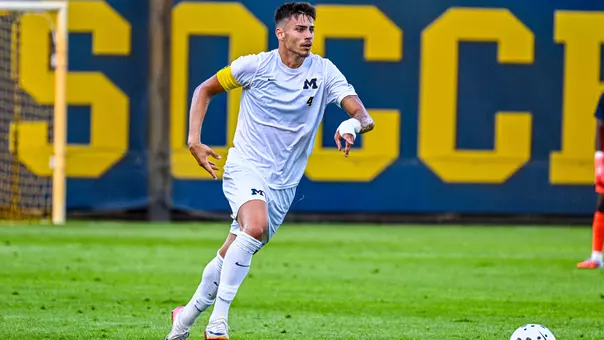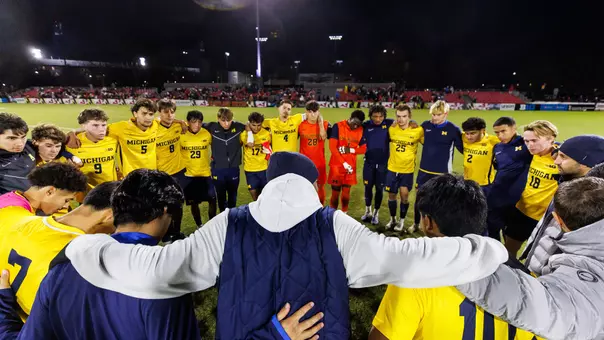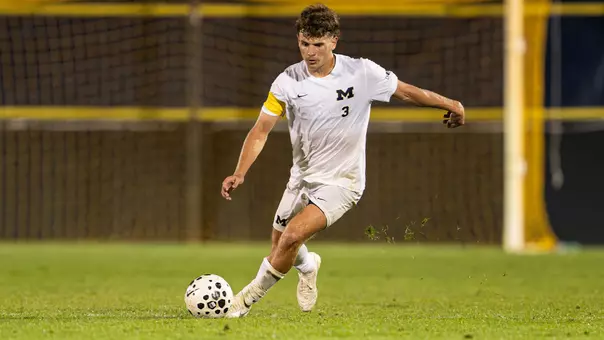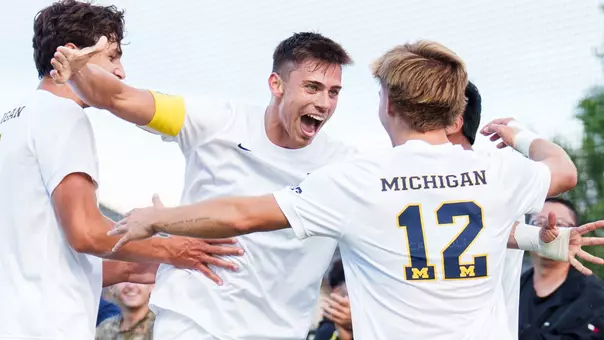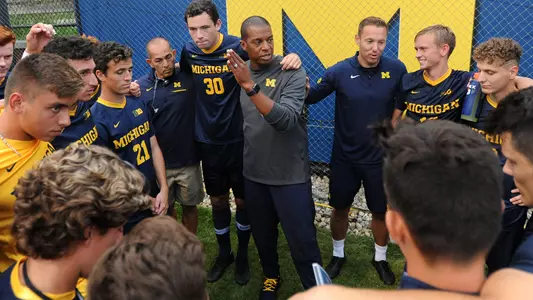
Men's Soccer Bolsters, Expands Culture with 'Social Justice 101' Initiative
2/2/2021 12:45:00 PM | Men's Soccer
In celebration of Black History Month, Michigan Athletics is considering "Where Do We Go From Here?" Through conversations and profiles with our student-athletes and staff, we will celebrate people and culture, while recognizing our country's history. We continue with a look at the men's soccer program and its "Social Justice 101" initiative.
Since last June, the University of Michigan men's soccer team has met once a month over Zoom to discuss a different societal issue. This ongoing education -- known as "Social Justice 101" within the group -- is mostly team-led. Last month, the sophomore class created a presentation on Dr. Martin Luther King Jr., and led a discussion about King's legacy. The other three classes will follow with their own assignments as the months progress this spring.
Head coach Chaka Daley -- along with student-athletes Umar Farouk Osman, Ryan Schultz and Carlos Tellez -- discussed Social Justice 101 and other thoughts about social and racial justice with Jon Jansen on Tuesday's (Feb. 2) Conqu'ring Heroes podcast.
As coach to 31 student-athletes from half-a-dozen different ethnicities, Daley is continuously working on the team's culture, an the all-encompassing buzzword that lays out a program's values, from how to prepare for competition down to the proper attire to wear while traveling. Last summer, Daley, a father of two, felt it was time to add another pillar to his program's culture, something that had little to do with soccer itself.
To begin, he turned to his staff for input, which, by itself, is an embodiment of the team from a diversity standpoint. Outside of Daley, associate head coach Tommy McMenemy is from England, assistant coach Jhojan Obando is from Colombia, and program assistant Justin Makar is half-Indian.
Through their discussions, all four men found a common theme: education.
"Every year, we assess the culture of our team and think of what steps we can take forward," said Daley, who is a member of the Big Ten Anti-Hate and Anti-Racism Coalition. "Culturally, based on what was going on and because our group is diverse, we didn't want to tiptoe around anything. These young men are going through a pivotal time in their lives, and we believed we needed to continue to build trust and have open and safe spaces.
"The biggest piece of this is educating people: on the statement we, as a team, put out. On systemic racism. On microaggressions. This was never a short game. We weren't doing these things to check a box. We wanted to truly weave it into the fabric of what we do and who we are."
Last June, the coaching staff sent every member of the team a survey asking what they were most interested in learning about. The topics ranged from climate change to homelessness to immigration. In total, there were 10 options with an additional space to write in anything not listed. Responses were not required, but Daley noted that the engagement among the group was "very good."
"We do not want this to become political. This revolves around humanity, what we think is right and wrong," said Daley. "We talk every day about making amazing choices, but that's not good enough. Before they speak and have conversations, they need to know what they're talking about. Educate, then act.
The monthly Zoom meetings specifically dedicate time to this education. Instead of talking soccer strategy, they talk about societal issues.
"We needed to start at the most basic level because everyone is at very different points in their lives and in their understanding. The goal was to make it educational -- and personal."

